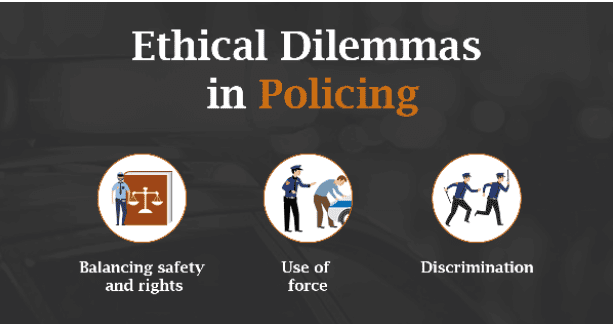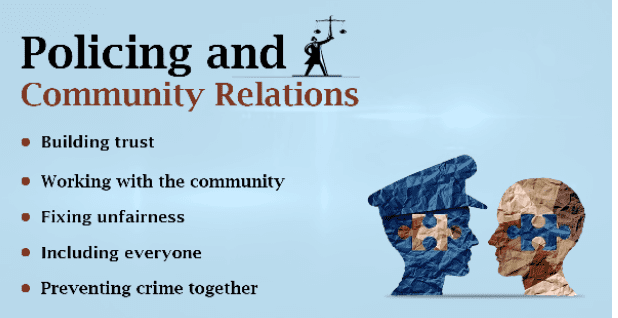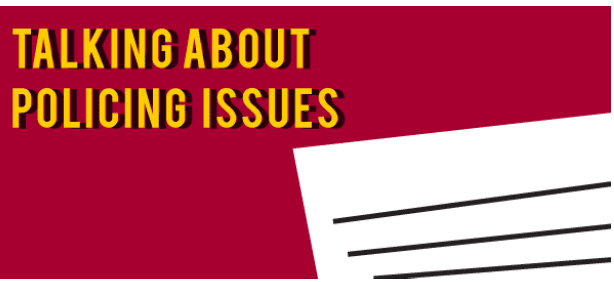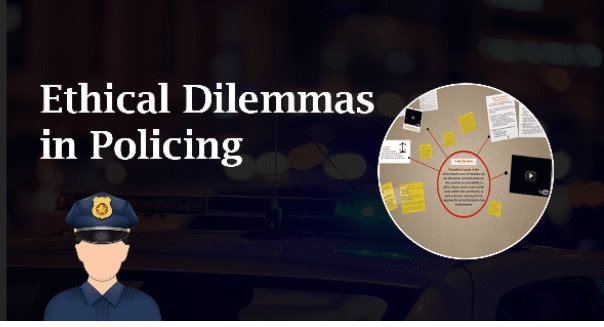Police officers have an important job: to keep our communities safe and make sure everyone follows the rules. However, Shannon Briley says, sometimes faces tough choices called dilemmas. Moreover, these dilemmas are tricky situations that make it hard to decide what’s right. For example, they have to balance keeping people safe with respecting their rights. However, they also need to be fair to everyone and not let their opinions affect their decisions. In this article, we’ll learn about these difficult dilemmas in policing and how they affect our society.
Ethical Dilemmas in Policing
Sometimes, police officers have to make hard choices called ethical dilemmas. Further, these choices are about doing what’s right and fair. In policing, ethical dilemmas are often about finding the balance between keeping people safe and respecting their rights. Let’s look at some common ethical dilemmas police officers face, explained by Shannon Briley:
- Balancing safety and rights: Police need to protect the community, but also respect people’s privacy and treat them fairly.
- Use of force: Sometimes, police have to use force to stop dangerous situations. But they should only use as much force as needed and avoid hurting innocent people.
- Discrimination: The police should treat everyone the same and not let their own biases affect how they act.
Understanding these ethical dilemmas helps create a fair and just society.
Legal Dilemmas in Policing

Legal dilemmas are challenging situations that police officers sometimes encounter. These dilemmas involve decisions that have to be made within the boundaries of the law. Let’s explore some common legal dilemmas in policing:
- Following the rules: Firstly, police officers must make sure they are doing their job according to the laws and regulations.
- Respecting rights: Secondly, it’s important for police to protect people’s rights, such as the right to privacy and freedom of speech.
- Surveillance and privacy: Thirdly, police need to balance keeping the community safe with respecting people’s privacy.
- Technological boundaries: Lastly, with new technologies, police must be careful to use them in ways that are legal and fair.
Understanding these legal dilemmas helps police officers ensure they are upholding the law while also respecting people’s rights.

Community Relations and Policing
Building good relationships between the police and the community is important. Let’s explore some key things about community relations in policing:
- Building trust: Police want people to trust them, so they treat everyone fairly and honestly.
- Working with the community: Police and the community work together to solve problems and make the neighborhood safer.
- Fixing unfairness: Police try to find and fix any unfairness in how they do their job.
- Including everyone: Police want to have officers from different backgrounds to represent the community they serve.
- Preventing crime together: According to Shannon Briley, Police and the community team up to make sure there is less crime and everyone is safe.
By having good community relations, the police and the community can work together to make the community a safer and happier place to live.
Policing in a Changing Society
As society changes, policing also needs to adapt to new challenges and ways of doing things. Let’s explore some important aspects of policing in a changing society:
- Policing diverse communities: Police officers need to understand and respect different cultures and backgrounds to serve everyone in the community.
- Responding to emerging crimes: Police adapt their strategies to address new types of crimes, like cybercrime or online scams.
- Incorporating new technologies: Police use advanced tools and techniques to solve crimes and keep people safe.
- Adapting to social changes: Police work to understand and address social issues like bullying, drug abuse, or mental health concerns.
- Strengthening community relationships: Police engage with the community to understand their needs and work together to create safer neighborhoods.
By staying up-to-date and adapting to societal changes, police can effectively protect and serve their communities.
<iframe width=”560″ height=”315″ src=”https://www.youtube.com/embed/qRo2UibZUpc” title=”YouTube video player” frameborder=”0″ allow=”accelerometer; autoplay; clipboard-write; encrypted-media; gyroscope; picture-in-picture; web-share” allowfullscreen></iframe>
Training and Professional Development
Training and professional development are essential for police officers to learn and grow in their roles. Let’s explore some important aspects of training and professional development:
- Ethical decision-making: Police officers are taught how to make good choices that are fair and follow the rules.
- Cultural competency: Police learn about different cultures to understand and respect everyone they serve.
- Continuous learning: Police officers are encouraged to keep learning and improving their skills throughout their careers.
- Communication skills: Police learn how to talk to people in different situations, like calming down a conflict or helping someone in need.
- Keeping up with new knowledge: Police stay updated on the latest laws, techniques, and technology to do their job effectively.
By investing in training and professional development, police officers become better equipped to protect and serve their communities.
Accountability and Oversight
Accountability and oversight are important aspects of policing that help ensure transparency, fairness, and trust. Let’s explore some key points about accountability and oversight:
- Internal accountability: Police departments have mechanisms in place to hold officers accountable for their actions, such as internal investigations and disciplinary procedures.
- External oversight: Independent organizations or agencies, like civilian review boards or ombudsman offices, monitor police actions and investigate complaints from the public.
- Transparency: Police departments share information with the public to maintain transparency and build trust.
- Checks and balances: Accountability measures ensure that police officers follow rules and act within the law.
- Building trust: Accountability and oversight help build trust between the police and the community they serve believed by Shannon Briley.
By promoting accountability and oversight, we can work towards a fair and just policing system that serves the best interests of everyone.

Concluding Thoughts
To sum it up, it’s important to deal with the tough problems in policing to create a safe and fair society. We need to find the right balance between keeping people safe and respecting their rights, using force responsibly, and treating everyone fairly.
This will help build trust between the police and the community. By providing proper training, adapting to changes, and working together with the community, we can make sure that the police do their job well, keeping everyone safe and treating them with respect.





























